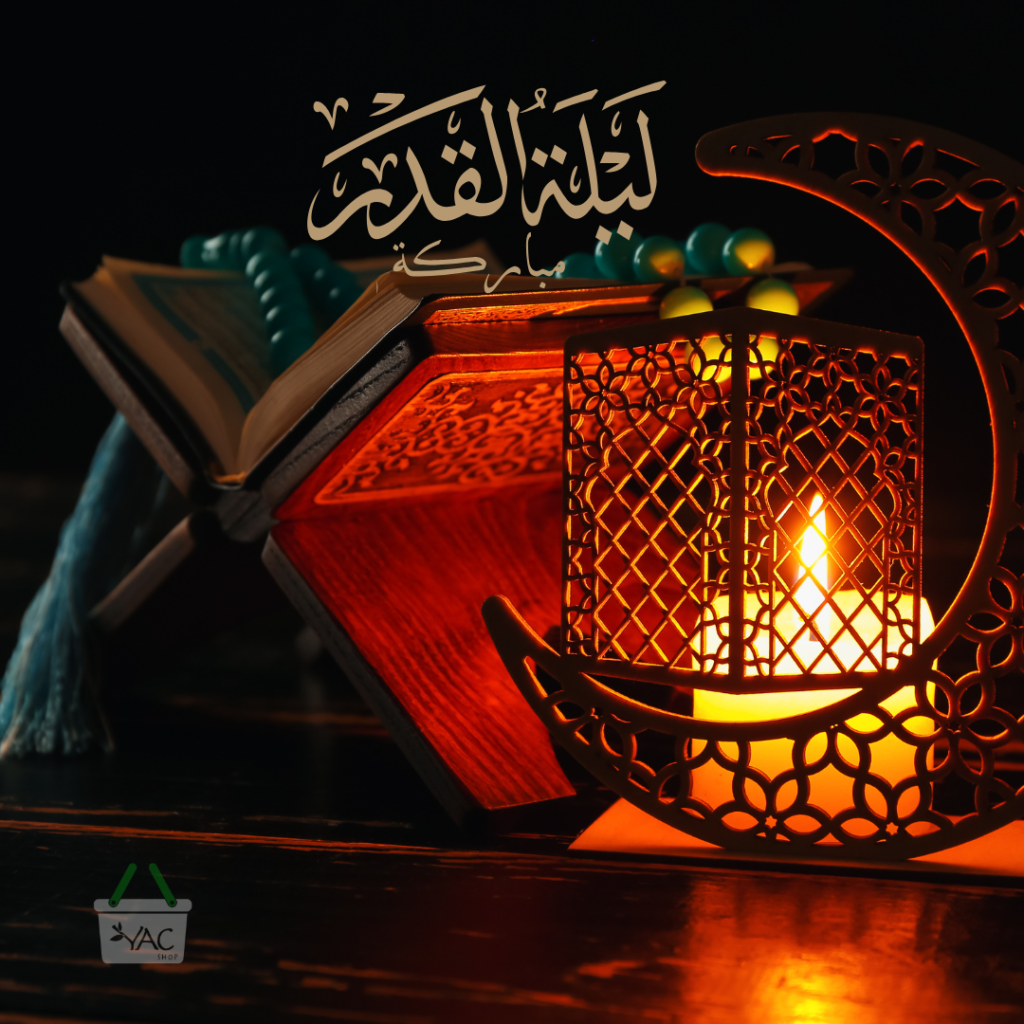
Celebrating March 8: A Day to Honor Women
March 7, 2025
The SIAM 2025 E-Ticket is Now Available
April 11, 2025Can We Anticipate Laylat Al-Ǫadr This Year?
Laylat Al-Ǫadr, or the Night of Decree, is one of the most significant nights of Ramadan for Muslims worldwide. It is mentioned in the Holy Ǫuran as a night better than a thousand months, marking the moment when the Ǫuran was revealed to Prophet Muhammad (peace and blessings be upon him) by the angel Jibril.
Why Is Laylat Al-Ǫadr So Important?
Laylat Al-Ǫadr holds immense spiritual importance as it signifies the revelation of the Holy Ǫuran and the divine mercy bestowed upon those who dedicate the night to prayers and worship. According to Islamic teachings, acts of worship performed on this night are multiplied, and sins are forgiven. It is a night of hope, supplication, and closeness to Allah.
When Does Laylat Al-Ǫadr Occur?
Although the exact date of Laylat Al-Ǫadr is unknown, it is believed to fall within the last ten odd nights of Ramadan—specifically, the nights of the 21st, 23rd, 25th, 27th, or 29th. However, many Islamic traditions and mathematical analyses of the Ǫuran suggest that the 27th night of Ramadan is the most likely.
Here are some interesting statistical observations based on Surah Al-Ǫadr (97) that link to the 27th night of Ramadan:
- Surah Al-Ǫadr contains five verses, corresponding to the five possible nights of Laylat Al-Ǫadr (21st, 23rd, 25th, 27th, and 29th Ramadan).
- The phrase “Laylat Al-Ǫadr” consists of nine letters in Arabic and appears three times in the Surah, making a total of 27 letters, hinting at the 27th night of Ramadan.
- Surah Al-Ǫadr contains 30 words, reflecting the number of days in the month of number of days in the month of Ramadan.
- The word “Hiya” (هي), meaning “it” and referring to Laylat Al-Ǫadr, is placed in the 27th position in the Surah, reinforcing the belief that Laylat Al-Ǫadr falls on the 27th night.
Muslim Traditions on This Night
During Laylat Al-Ǫadr, Muslims intensify their acts of worship. Common practices include:
- Night prayers (Ǫiyam Al-Layl): Many believers spend the entire night praying, reciting the Ǫuran, and seeking closeness to Allah.
- Supplications (Dua): It is recommended to make numerous supplications, particularly the one taught by the Prophet: “Allahumma innaka afuwwun tuhibbu al-afwa fafu anni” (O Allah, You are Forgiving and You love forgiveness, so forgive me).
- Recitation of the Ǫuran: Many Muslims aim to complete the recitation of the Ǫuran on this night.
- Charity and Good Deeds: Giving to the needy and engaging in acts of kindness are highly encouraged during Laylat Al-Ǫadr.
Moroccan Traditions on Laylat Al-Ǫadr
In Morocco, Laylat Al-Ǫadr is a particularly sacred and respected night. Common customs include:
- Mosques are filled with worshippers praying until down.
- Families prepare special dishes for this blessed night.
- Many households burn bukhoor (incense) to create a spiritually uplifting atmosphere.
- Some people wear new traditional clothing as a symbol of purification and renwal.

Laylat Al-Ǫadr Traditions in Oujda
The city of Oujda is known for its numerous mosques and the extraordinary voices of its imams during Tarawih prayers. Laylat Al-Ǫadr in Oujda is marked by prayers continuing until dawn, with breaks for the recitation of hadiths and the completion of the Ǫuran (Khatm). A deeply rooted tradition is the preparation of couscous at home, which is also shared in mosques during prayer breaks. Bukhoor incense is widely used to scent the air, enhancing the spiritual ambiance of this blessed night. Additionally, this night is an opportunity to celebrate children who have fasted for the first time on Laylat Al-Ǫadr by giving them gifts and new clothes.
Laylat Al-Ǫadr is an exceptional night of blessings, mercy, and forgiveness. It offers a unique opportunity for every Muslim to seek closeness to Allah and gain His favor. Whether through prayer, Ǫuran recitation, or the use of bukhoor to enhance the spiritual atmosphere, every act performed on this night is a step toward inner peace and divine reward.
We wish you a Night of Decree filled with blessings and light!








